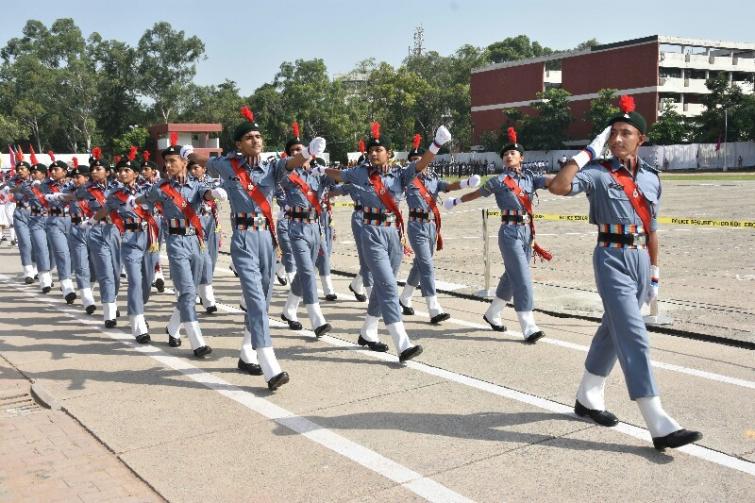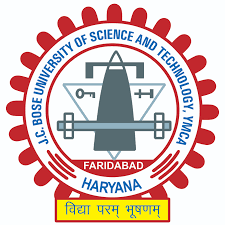

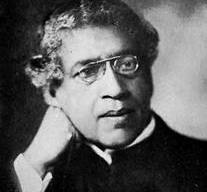



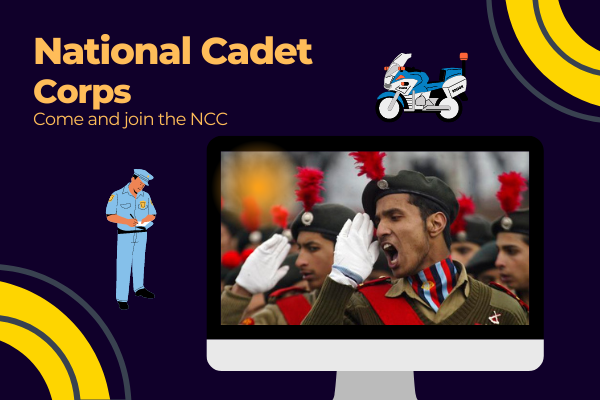
The National Cadet Corps is the youth wing of Armed Forces with its Headquarters at New Delhi, Delhi, India. It is open to school and college students on voluntary basis. National Cadet Corps is a Tri-Services Organisation, comprising the Army, Navy and Air Wing, engaged in grooming the youth of the country into disciplined and patriotic citizens. The National Cadet Corps in India is a voluntary organisation which recruits cadets from high schools, higher secondary, colleges and universities all over India. The Cadets are given basic military training in small arms and parades. The officers and cadets have no liability for active military service once they complete their course.
The National Cadet Corps (NCC) is a youth development movement. It has enormous potential for nation building. The NCC provides opportunities to the youth of the country for their all-round development with a sense of Duty, Commitment, Dedication, Discipline and Moral Values so that they become able leaders and useful citizens. The NCC provides exposure to the cadets in a wide range of activities., with a distinct emphasis on Social Services, Discipline and Adventure Training. The NCC is open to all regular students of schools and colleges on a voluntary basis. The students have no liability for active military service.
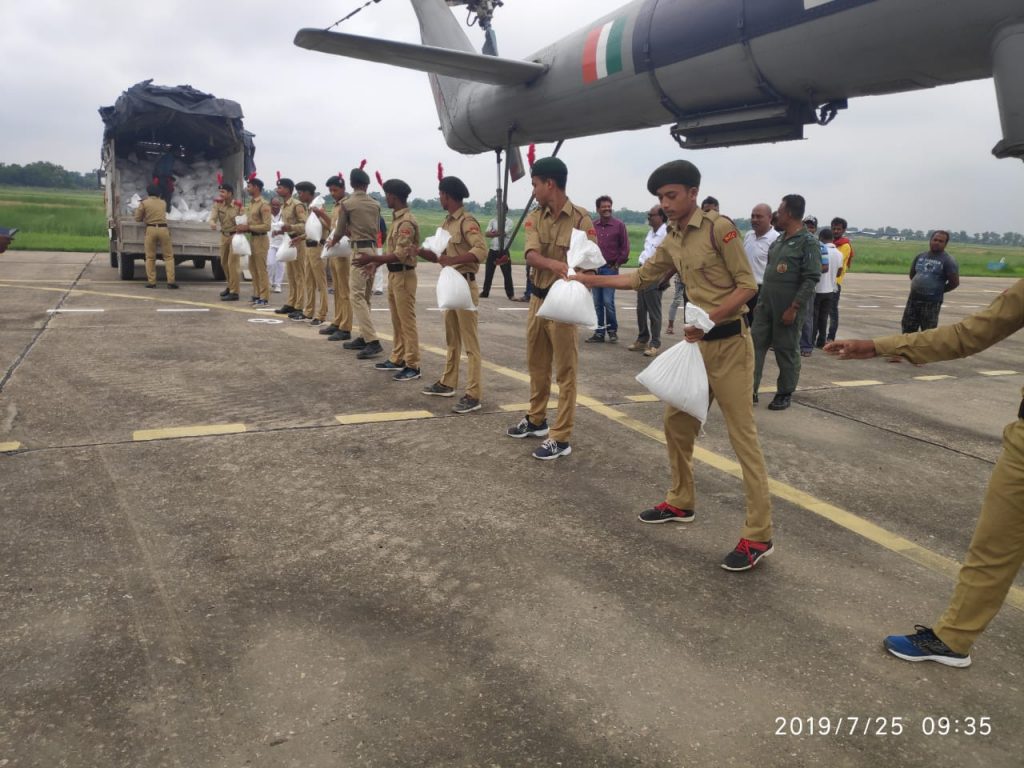
Institutional training conducted at Colleges and Schools is the mainstay of NCC training and is conducted by Associate NCC Officers and Armed Forces personnel. The syllabus comprises Common Subjects and Service Subjects in the ratio 70:30. While the Senior Wing/Division training is for three years and has 300 periods the Junior Wing/Division training is for two years and encompasses 240 periods of training. The training year is from 01 Apr to 31 March. Training schedules planned for cadets ensure that the optimum benefits of the organisation reach maximum number of cadets. Emphasis is on practical training. Case study method of instruction, wherever possible, is made to facilitate active participation and better assimilation.
Institutional training conducted at Colleges and Schools is the mainstay of NCC training and is conducted by Associate NCC Officers and Armed Forces personnel. The syllabus comprises Common Subjects and Service Subjects in the ratio 70:30. While the Senior Wing/Division training is for three years and has 300 periods the Junior Wing/Division training is for two years and encompasses 240 periods of training. The training year is from 01 Apr to 31 March. Training schedules planned for cadets ensure that the optimum benefits of the organisation reach maximum number of cadets. Emphasis is on practical training. Case study method of instruction, wherever possible, is made to facilitate active participation and better assimilation.
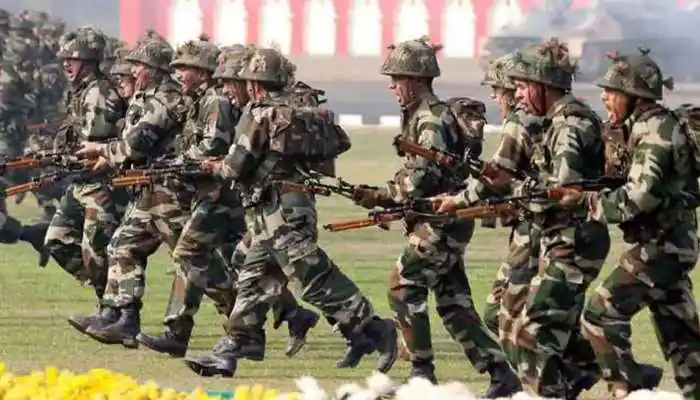
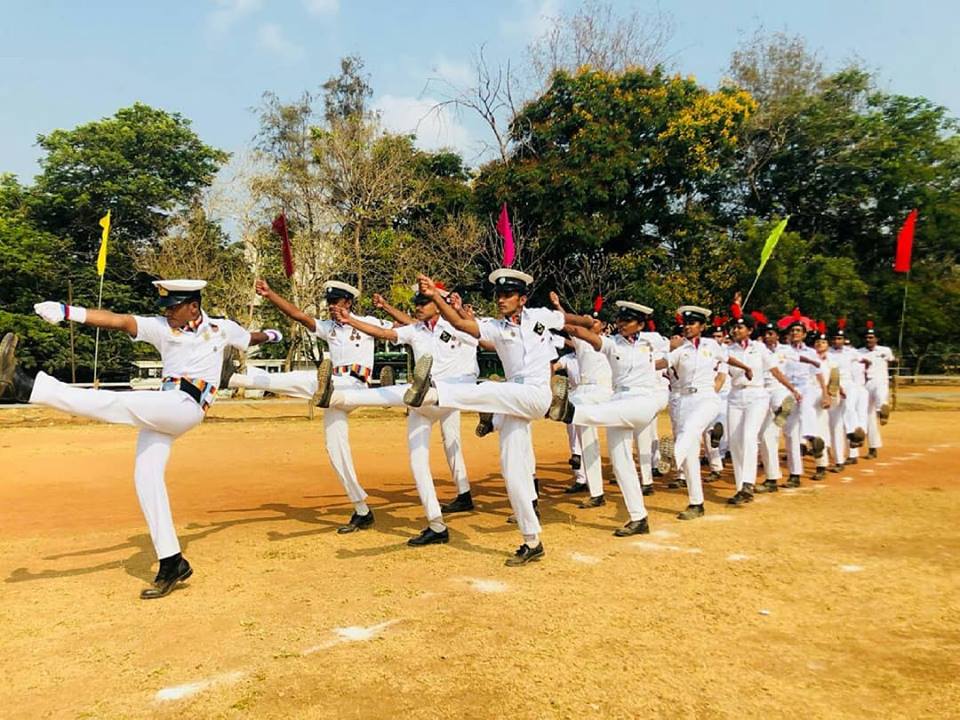
In Indian Navy, the NCC ‘C’ certified candidates get 6 extra marks for sailor’s job and 15 extra marks for Artificer Apprentices. • Up to 9 vacancies in navy are reserved for NCC ‘C’ certified candidates. To get the recruitment done on these vacancies the candidate must have done his/her B.Sc. in physics or maths. B.E. candidates are also eligible for these vacancies. The age group of the candidate must be 19 to 24 years. He/she must have passed by SSB exempted from CDS examination of UPSC
The idea of NCC (National Cadet Corps) has its roots from Britishers idea of University Corps that was formed soon after the WWII. The intension of forming University Corps was to create awareness and interest among the youth of the nation to join the defence forces once they have complete their education. It had a tremendous response in the educational institutes starting from schools to colleges to universities. After independence the present day NCC came into existenceunder the Ministry of Defence on 16 Apr 1948 through NCC act XXXI, 1948. In 1950 Air Wingwas added on 1stApril with one Air squadron each at Bombay and Kolkata.
